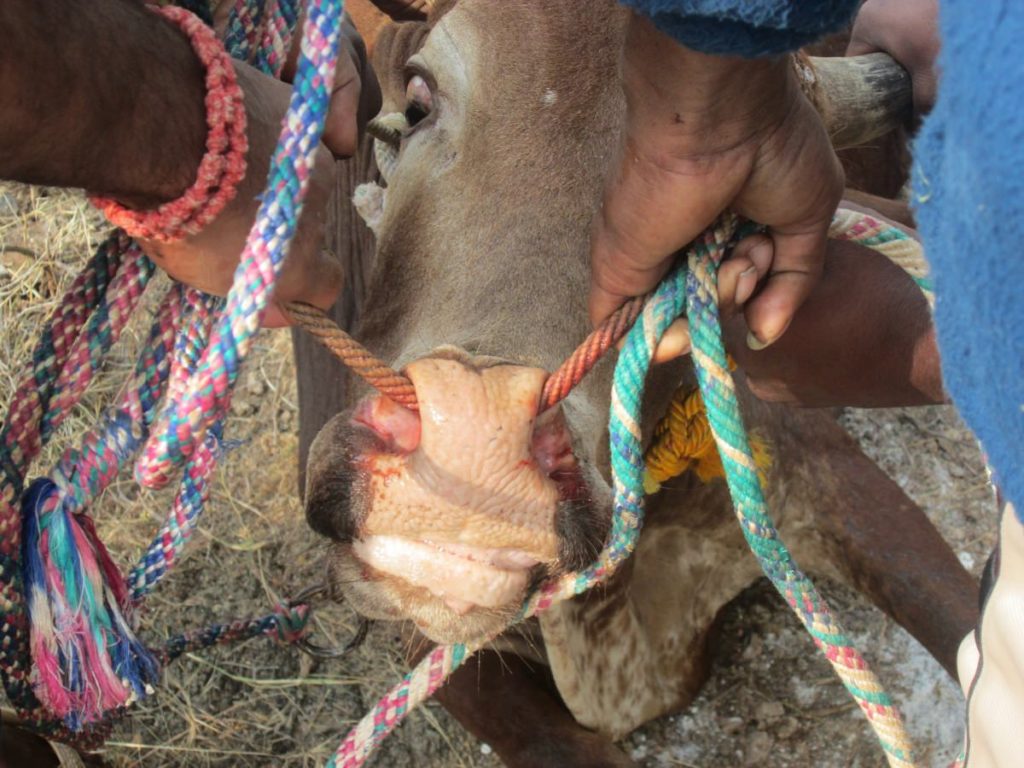Animal Rahat is a sister concern of PETA. Dr Manilal Valliyate heads Animal Rahat and has added the following response to the ongoing discussion (article my me on Jallikattu, Response by Poorva Joshipura, CEO of PETA, my response to that article):
Hi Vidyut,
Apologies for taking this long to get back to you.
Introducing myself, I am a veterinarian who worked for nearly two decades trying to improve the welfare of animals in India, particularly working animals such as horses and cattle, is a son to a farmer and father to a 12 year old boy.
Let me share my perspective as a veterinarian and also a person having some basic understanding about large animal behaviour and welfare. Considering the broad category of animals- prey and predators- I am sure we all will agree that, bulls are prey animals. More than describing whether they are aggressive or docile, what we need to understand is when they are cornered or their movements are restricted, they have to either chose to ‘fight’ or adopt a ‘flight’ behaviour. Usually a fight scenario comes into picture, when they can’t escape from a difficult situation. Otherwise these ruminants would ideally, graze for hours or eat food, lie down and ruminate (chewing the cud- a process of digestion) unless bothered by a predator, which I think some humans are. A bull simply charging at people would be an exceptional situation. Yes, they would do it when they don’t have any other choice of responding to a stimuli of fear, pain or distress. In jallikattu, that’s exactly what people exploit. One of the globally accepted definition of animal welfare mandates, ‘freedom from’ pain, injury, disease, fear and distress so as to achieve reasonable welfare. When we know that jallikattu do not protect the bulls from any of these, there is no point in calling such events as our culture or tradition. Simply because, I don’t think we want our culture and tradition to labelled as ‘cruel’. I have been part of inspections of many jallikattu events from 2011 to 2013 and the bottom line is, one has to induce fear and pain and agitate a bull to push him out of the vadi-vasal (I call it a torture chamber) and face the tamers! Otherwise, if the people around the bull are not causing any harm, the bulls would simply eat, stand or lie down and chew the cud just as mentioned above. Probably, one can easily find such a harmless bull freely wandering in any urban area like Delhi, Lucknow or Noida, not because they chose to be in a chaos of traffic, but simply because they represent the unwanted by-product of the dairy industry abandoned on the roads.
My father was a farmer before he joined the police force in 70s. He still remember the ‘Kalapoottu’ (bull race) competition in Kerala which he had witnessed and was part of. While he used to plough his agricultural field with a pair of bulls he had and he also allowed them to be used for competition during the harvest festival. However, today I don’t think he supports such events anymore. Just because, he came to know more about the animals, the way they feel threatened and feel pain just like we all do. What I know now is he has taken a compassionate stand now based on his own learning of life and he no more support any such events that (ab)use animals.
My son, maybe because of my work and interests, has been watching the debate on jallikattu covered by the media. What I remember is, he telling me- can’t these people see that the bulls are frightened and are running for life and actually are in no mood to “play” with the people? He continues- it doesn’t make any sense at all, when people supporting jallikattu says, there is no cruelty! It’s right in front of you actually! You just need the eyes to see it. For my son, it is simple common sense. He says, people are using stupid excuses to justify their actions. What they need to think is, what if these bulls were actually their sons and daughters left to a mob to manhandle? It is surprising that, some people do claim that the bulls are like their children; but the truth is these children are often send to slaughter when they are useless, except for meat.
Though my views above are more on ethology and ethics, what I would like to emphasise is that, there is a law of the land, enacted in 1960 and under Section 3, it very clearly sates, “It shall be the duty of every person having the care or charge of any animal to take all reasonable measures to ensure the well-being of such animal and to prevent the infliction upon such animal of unnecessary pain or suffering.” There are Rules framed under the same PCA Act which very clearly says what is necessary suffering. But Jallikattu is not part of that exception, so is many other form of cruel animal entertainment. And most importantly why can’t we respect and implement the judgement of the topmost court of the country which ban jallikattu and similar events! The Apex court has also stated that when culture and tradition are at variance with the law enacted by Parliament, the law takes precedence.
I can also confidentially say that, my arguments above can be scientifically demonstrated and that is what we do exactly at Animal Rahat– a sister organisation of PETA striving to improve the quality of life of working bulls in Maharashtra.
You may print this response, if you find it appropriate and helps the discussion.
Thank you.
Kind regards
Dr Manilal Valliyate

